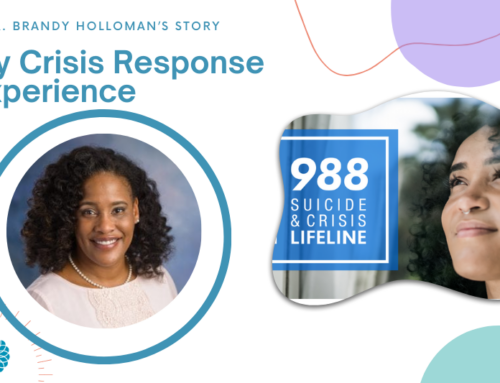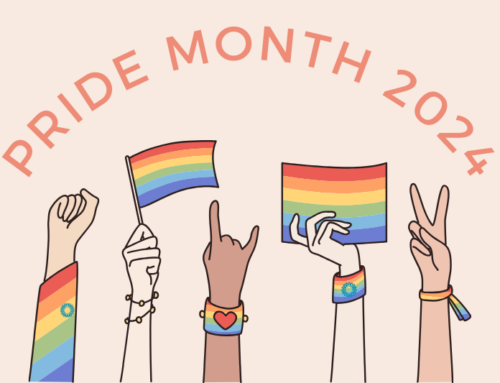After weeks of observing the search for missing 22-year-old “van life” blogger Gabby Petito, a riveted public watched as authorities announced that her body had been found in Wyoming on Sept. 19. Authorities believe that she was last seen by her boyfriend, Brian Laundrie, who is being pursued because of a federal arrest warrant accusing him of illegally using a debit card that was not his own.
While Laundrie has not been directly tied to Petito’s death and disappearance, many believe that her case and relationship with Laundrie has created long-lasting change and ongoing conversation regarding toxic relationships, mental health, and racial equity in missing persons cases. At Change Matrix (CM), this case, and its impacts, has been especially compelling due to its ties to our expertise and advocacy in the arenas of mental health and health equity.
Domestic Violence & Mental Health Resources
Notable among the cases’s impacts is the Gabby Petito Foundation, which was created by her family in honor of her death and to prevent cases of domestic violence and create more awareness about healthy communication within relationships.
The Gabby Petito Foundation. No one should have to find their child on their own. We are creating this foundation to give resources and guidance on bringing their children home. We are looking to help people in similar situations as Gabby. #gabbypetito https://t.co/oaX4BsPcYj pic.twitter.com/I9tz5q6Hcc
— joseph petito (@josephpetito) September 25, 2021
“I want you to be inspired by Gabby, that’s what we are looking for,” her father, Joseph Petito, was quoted as saying in a CBS New York piece. “If there is a relationship that you are in that might not be the best thing for you, leave it, now.”
The National Network to Eliminate Disparities in Behavioral Health (NNED) is CM’s oldest project and a network of community-based organizations focused on the mental health and substance use issues of diverse racial and ethnic communities. Additionally, the NNED supports information-sharing and provides thousands of resources through its database on topics like domestic violence.
Experts say that while domestic violence is often physical in nature, there are many instances in which toxicity presents itself in other forms like jealousy, anger, and self-esteem issues.
“I think it’s most often seen in romantic relationships where the partner will manipulate the other person into saying that, ‘This isn’t happening’ or ‘You’re just imagining’ or ‘You’re blowing it out of proportion,'” says Agape Counseling Services Founder Christopher Price in a WKBN 27 article. “However, it does occur in other relationships as well, specifically familiar relationships.”
In the case of Petito, recently released bodycam video footage shows what many experts feel are the telltale signs of an abusive relationship.
Here, violence expert Katrina Harley analyzes possible warning signs.
Ongoing Lack of Media Scrutiny on Cases of Missing People of Color
As devastating as Petito’s case is and continues to be for her family, many have asked why the media’s focus hasn’t been as intense in cases surrounding people of color. In fact, it’s because of intense national media coverage that authorities were able to receive helpful tips and further the investigation.
Mark Lukasiewicz is the dean of the Lawrence Herbert School of Communication at Hofstra University. In a CBS New York piece he was quoted as saying that representation in the newsroom matters as much as anything in the selection of national news stories.
“Story selection in any newsroom is not an exact science,” Lukasiewicz says. “What images and video and photography and witnesses are available. It’s a whole mix of those things, but the decision-making happens also in a context of who’s making those decisions, and if that newsroom doesn’t represent the community it’s covering, then those decisions are going to look different.”
According to the National Crime Information Center’s Missing Person and Unidentified Person Files, of the roughly half a million people who were reported missing in the U.S. last year, almost 40% were people of color. Despite this fact, media coverage of these cases hasn’t come close to the scale of Petito’s.
“I can roll off Sandra Levy, Natalee Holloway, Elizabeth Smart, Caylee Anthony, Gabby Petito,” says Derrica Wilson in a Today report. “But no one can name one person of color that has received that type of mainstream media. Not one person.”
She is the founder of the Black & Missing Foundation, which dedicates itself to raising awareness about missing persons cases affecting people of color.
“I would have liked that swift rush, push [as in Petito’s case] to find my aunt faster. That’s all I wish for,” says Seraphine Warren of the Navajo Nation in an Associated Press report.
Warren lives in Utah, which is one of several states Petito and boyfriend Laundrie passed through on their cross-country tour.
This is just one of many examples that highlights the existing disparities between white missing persons and people of color within the U.S.
As the story develops, CM is hopeful for both closure and a resolution for both Petito’s family and the families of the many thousands of missing people of color across the U.S.
For more resources on missing persons cases visit this link.




